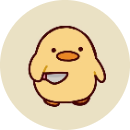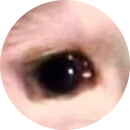Who wrote that poem? ( by )

Những câu hỏi liên quan
– “Who wrote the poem?” – “It’s said ________ written by one of the Bronte sisters.”
A. to have been
B. to being
C. to having been
D. to be
Đáp án A
Bị động với các động từ: say, report, think, believe, understand, know, expect...
Câu chủ động: S + say(report, think, believe, understand, know, expect...)+ that + S + V
C1: ~>It + be + said (reported, thought, believed, understood, known, expected...) + that + S + V
C2: ~>S + be + said (reported, thought, believed, understood, known, expected...) to-inf/to have + Vpp...
Notice: dùng to have + Vpp để nhấn mạnh hành động đã xảy ra trong quá khứ.
Dịch nghĩa: - “Ai sáng tác bài thơ này thế?” – “Nó được cho là được viết bởi chị em nhà Bronte.”
Đúng 0
Bình luận (0)
Vt lại câu bằng từ cho sẵn
Who wrote this poem?
- By_____________________
(Dùng who hoặc whom)
giải thích dùng cái nào
Trả lời :
- By whom was this poem written ?
Giải thích : câu hỏi này muốn hỏi về tân ngữ ( bài thơ được viết bởi AI ) => dùng whom
Your shoes are as big as mine. (size)
-....................................................
Could you tell me the way to the nearest post office? (mind)
-...................................................................................
Who wrote that poem? (by)
-....................................
Martin said to Susan:Can you work on saturday? (could)
-....................................................................................
There...
Đọc tiếp
Your shoes are as big as mine. (size)
->....................................................
Could you tell me the way to the nearest post office? (mind)
->...................................................................................
Who wrote that poem? (by)
->....................................
Martin said to Susan:"Can you work on saturday?" (could)
->....................................................................................
There is usually a lot of sunshine during summer days (sunny)
->...........................................................................................
Hoa said"Would you like to join me for dinner,Mai?" (invited)
->.....................................................................................
Your shoes are as big as mine. (size)
-> Your shoes have the same size as mine.
Could you tell me the way to the nearest post office? (mind)
->Would you mind telling me the way to the nearest post office?
Who wrote that poem? (by)
-> By whom is that poem written?
Martin said to Susan:"Can you work on saturday?" (could)
-> Martin asked Susan if she could work on Saturday.
There is usually a lot of sunshine during summer days (sunny)
-> During summer days, it is usually sunny.
Hoa said"Would you like to join me for dinner,Mai?" (invited)
-> Hoa invited Hoa to join her for dinner.
Đúng 0
Bình luận (0)
Viết lại câu sao cho nghĩa không đổi:
4. They think that Ms Nga wrote the poem for her friends.
=> Ms Nga
is thought to have written the poem for her friends.
Đúng 2
Bình luận (0)
III. Complete the second sentence in such a way that it has the same meaning as the first one. (2 points)1. Clement Clarke Moore wrote the poem in 1823.- The poem……………………………………………………2. We are waiting for the school bus, said the children.- The children said ....................................................................3. Roses cant possibly grow in such poor ground.- It is impossible .......................................................................4. The last time I played tennis was...
Đọc tiếp
III. Complete the second sentence in such a way that it has the same meaning as the first one. (2 points)
1. Clement Clarke Moore wrote the poem in 1823.
-> The poem……………………………………………………
2. "We are waiting for the school bus", said the children.
-> The children said ....................................................................
3. Roses can't possibly grow in such poor ground.
-> It is impossible .......................................................................
4. The last time I played tennis was in 1990.
->I haven't....................................................................................
1. Clement Clarke Moore wrote the poem in 1823.
The poem was written bt Clement Clarke Moore in 1823.
2. " We are waiting for the school bus" , said the children.
The children said that they are waiting for the school bus.
3. Roses can't possibly grow in such poor ground.
It is impossible to grow roses in such poor ground.
4. The last time I played tennis was in 1990.
I haven't played tennis since 1990.
Đúng 1
Bình luận (0)
1. Clement Clarke Moore wrote the poem in 1823.
The poem ..................................................................................................................................................
The poem by Clement Clarke was written in 1823
Đúng 0
Bình luận (0)
The poem was written in 1823 by Clement Clarke Moore
Đúng 0
Bình luận (0)
Change the active into the passive
1.They may use this room for the classroom
2.When will he lend his friend his new shoes?
3.Who wrote the poem?
4.The teacher explains the lesson
5.The mechanic is repairing Judy's car
6.Should they help Jane with the sewing?
7.I can't do these exrcises quickly.
8.She had finished the report by noor.
9.The doctor examined the patients.
10.These boys made that noise.
Change the active into the passive
1.They may use this room for the classroom
This room may be used for the classroom
2.When will he lend his friend his new shoes?
When will his friend be lent his new shoes ?
3.Who wrote the poem?
Who was the poem written by ?
4.The teacher explains the lesson
The lesson is explained by the teacher
5.The mechanic is repairing Judy's car
Judy's car is being repaired by the mechanic
6.Should they help Jane with the sewing?
Should Jane be helped with the sewing?
7.I can't do these exrcises quickly.
these exrcises can't be done quickly by me
8.She had finished the report by noor.
the report had been finished by her by noor
9.The doctor examined the patients.
the patients were examined by the doctor
10.These boys made that noise.
That noise was made by these boys
#Linn
Đúng 0
Bình luận (1)
In 1823, the patron saint of children, Saint Nicholas appeared in a poem called A visit from Saint Nicholas. The character in the poem was a fat jolly man who wore a red suit and gave children presents on Christmas Eve. The poem, which was written by Clement Clark moore, an American professor, became popular in the USA. Santa Claus is based on the description of Saint Nicholas in this poem.1. Who wrote the poem A visit from Saint Nicholas?............................................................
Đọc tiếp
In 1823, the patron saint of children, Saint Nicholas appeared in a poem called A visit from Saint Nicholas. The character in the poem was a fat jolly man who wore a red suit and gave children presents on Christmas Eve. The poem, which was written by Clement Clark moore, an American professor, became popular in the USA. Santa Claus is based on the description of Saint Nicholas in this poem.
1. Who wrote the poem A visit from Saint Nicholas?
....................................................................................................................................................
2. Is Santa Claus based on the description of Saint Nicholas in the poem?
....................................................................................................................................................
3. What does a fat jolly man who wore a red suit do on Christmas Eve?
....................................................................................................................................................
4. Did the poem become popular in the USA?
....................................................................................................................................................
In 1823, the patron saint of children, Saint Nicholas appeared in a poem called A visit from Saint Nicholas. The character in the poem was a fat jolly man who wore a red suit and gave children presents on Christmas Eve. The poem, which was written by Clement Clark moore, an American professor, became popular in the USA. Santa Claus is based on the description of Saint Nicholas in this poem.
1. Who wrote the poem A visit from Saint Nicholas?
................Clement Clark moore....................................................................................................................................
2. Is Santa Claus based on the description of Saint Nicholas in the poem?
...................Yes, he is.................................................................................................................................
3. What does a fat jolly man who wore a red suit do on Christmas Eve?
..................He gives children presents on Christmas Eve..................................................................................................................................
4. Did the poem become popular in the USA?
.........................Yes, it is...........................................................................................................................
Đúng 0
Bình luận (0)
21. He _________ this poem when he was young.A. write B. wrote C. has written D. have written22. Didn’t they _________ that room yesterday?A. paint B. painted C. have painted D. haven’t painted23. How many times _________ him since he went to Vietnam?A. you saw B. did you see C. you have seen D. have you seen24. She _________ all the books written by Nguyen Nhat Anh.A. read B. reads...
Đọc tiếp
21. He _________ this poem when he was young.
A. write B. wrote C. has written D. have written
22. Didn’t they _________ that room yesterday?
A. paint B. painted C. have painted D. haven’t painted
23. How many times _________ him since he went to Vietnam?
A. you saw B. did you see C. you have seen D. have you seen
24. She _________ all the books written by Nguyen Nhat Anh.
A. read B. reads C. has read D. have read
25. Peter _________ to Paris for a holiday last week.
A. went B. has gone C. goes D. will go
26. What do the _________ often do?
A. voluntarily B. voluntary C. volunteers D. volunteerism
27. We are helping the old man to repair the roofs of his _________.
A. house B. car C. garden D. church
28. This is an informal school. It provides classes to _________ children in my town.
A. disabled B. blind C. deaf D. dumb
29. They raise money to build a high-rise hospital for people in a _________ area.
A. rainy B. sunny C. urban D. flooded
30. He _________ thousands of dollars to charity.
A. help B. helped C. received D. donated
31. They _________ trees in public areas recently.
A. plant B. planted C. have planted D. will plant
32. We _________ sick children in Hue Hospital last Sunday.
A. visit B. visited C. have visited D. will visit
33. Students in our school _________ their used books to poor children lately.
A. donate B. donated C. have donated D. will donate
34. Did he _________ to teach English to street children yesterday?
A. start B. has started C. have started D. started
35. She _________ small children in the neighborhood since last month.
A. tutor B. tutors C. tutored D. has tutored
36. Do volunteers often spend time helping other people in _________, orphanages or homes for the aged?
A. capitals B. markets C. schools D. hospitals
37. We are helping the poor people in the remote areas.
A. faraway B. nearby C. small D. difficult
38. During summer vacations, we teach children in _________ areas how to read and write.
A. mountain B. urban C. mountainous D. suburb
39. What kind of _________ work are you participating in?
A. voluntary B. volunteerism C. voluntarily D. volunteer
40. People who are not in good health are _________ people.
A. elderly B. homeless C. rich D. sick
21. He _________ this poem when he was young.
A. write B. wrote C. has written D. have written
22. Didn’t they _________ that room yesterday?
A. paint B. painted C. have painted D. haven’t painted
23. How many times _________ him since he went to Vietnam?
A. you saw B. did you see C. you have seen D. have you seen
24. She _________ all the books written by Nguyen Nhat Anh.
A. read B. reads C. has read D. have read
25. Peter _________ to Paris for a holiday last week.
A. went B. has gone C. goes D. will go
26. What do the _________ often do?
A. voluntarily B. voluntary C. volunteers D. volunteerism
27. We are helping the old man to repair the roofs of his _________.
A. house B. car C. garden D. church
28. This is an informal school. It provides classes to _________ children in my town.
A. disabled B. blind C. deaf D. dumb
29. They raise money to build a high-rise hospital for people in a _________ area.
A. rainy B. sunny C. urban D. flooded
30. He _________ thousands of dollars to charity.
A. help B. helped C. received D. donated
31. They _________ trees in public areas recently.
A. plant B. planted C. have planted D. will plant
32. We _________ sick children in Hue Hospital last Sunday.
A. visit B. visited C. have visited D. will visit
33. Students in our school _________ their used books to poor children lately.
A. donate B. donated C. have donated D. will donate
34. Did he _________ to teach English to street children yesterday?
A. start B. has started C. have started D. started
35. She _________ small children in the neighborhood since last month.
A. tutor B. tutors C. tutored D. has tutored
36. Do volunteers often spend time helping other people in _________, orphanages or homes for the aged?
A. capitals B. markets C. schools D. hospitals
37. We are helping the poor people in the remote areas.
A. faraway B. nearby C. small D. difficult
38. During summer vacations, we teach children in _________ areas how to read and write.
A. mountain B. urban C. mountainous D. suburb
39. What kind of _________ work are you participating in?
A. voluntary B. volunteerism C. voluntarily D. volunteer
40. People who are not in good health are _________ people.
A. elderly B. homeless C. rich D. sick
Đúng 2
Bình luận (0)






















